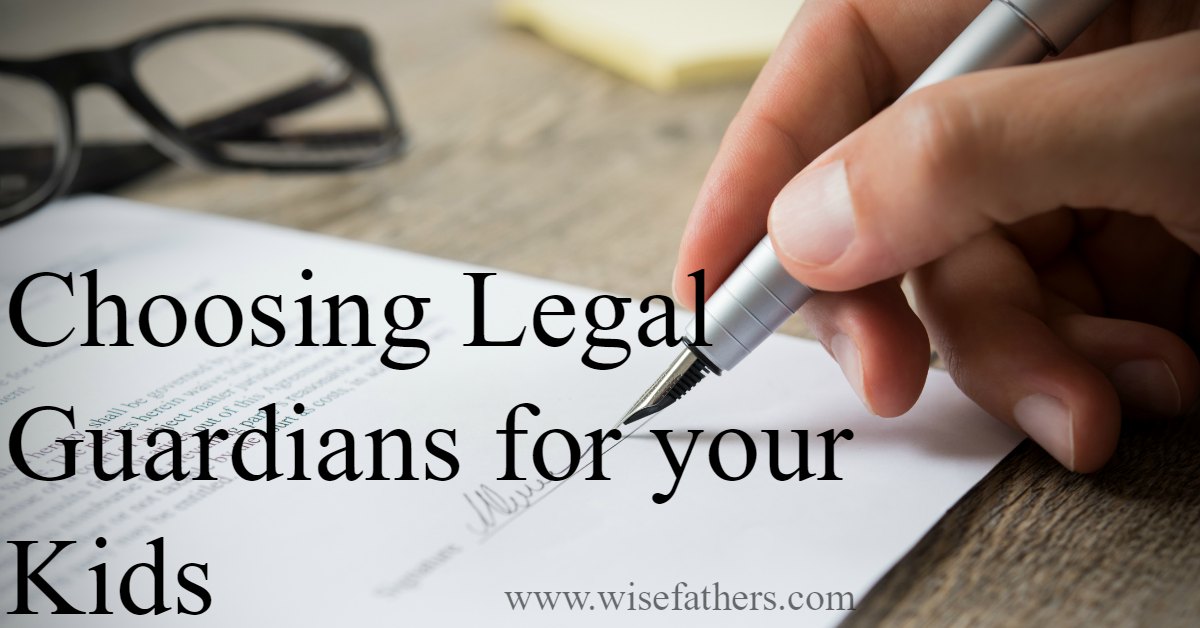
Choosing Legal Guardians For Your Kids
Choosing legal guardians is tough. Unlike being a godparent, a legal guardian is a legally recognized (and binding) relationship. Your kids will only ever have a legal guardian if you stop being able to be their parent or aren’t close enough to be there when they are needed, such as for medical care.
Types of Guardianship
Temporary
Sometimes, parents need to specify a legal guardian because they can’t be with, or near, their kids. Today, one unfortunately common reason for this is because either both their parents or the only custodial parent is deployed with the military. Less often, a child reaches the elite level of a sport and lives in a different state from their parents. In that case, another person, such as the coach, may be made a temporary legal guardian so they can take care of medical issues, school forms, etc.
If a parent is declared mentally incompetent, put in jail, or found to be abusive or neglectful, the courts may appoint a legal guardian to care for their child(ren). This could be a grandparent or other relative, but no matter who it is, the courts are supposed to keep the child’s best interest at heart.
Permanent
A legal guardian does not normally replace a parent. A parent’s rights are only fully replaced in two cases.
- The first is when they relinquish them, most often as a result of adoption.
- The second is when either both parents have died or one has died and the other legally abandoned them.
It’s important for all parents to write a will and specify their children’s guardian(s) in case of their death or incapacitation to prevent them from being put “into the system.”
Just to restate an important point, declaring a child’s legal guardian in the event of the worst does not give that person any immediate legal standing in their life. In my opinion, it is a good idea to let kids know who this person (or people) is. Knowing whether they would go to an aunt, cousin, older sibling, grandparent, etc. in an emergency can be comforting to a child. I know I always appreciated knowing that.
Making the Choice
Friends and family are the first place to look. There is no right or wrong answer between these two groups, you just need to find the right choice for your children. Elements to consider include:
- Safety – This is so obvious you may not even consciously think about it, but it really has to be the number one issue. If the environment or potential guardians aren’t safe, then the court can overrule a parent’s wishes in the child’s interest.
- Age – Grandparents are a wonderful thing. Some are young and healthy enough to become guardians (parents) for your kids. Others are not. Be realistic about both their current physical condition and what it will likely be as your children grow. If they are healthy 70-year-olds now, but your youngest is two, it’s not realistic to think they will stay healthy until the kids are grown. If they are in their mid-40s and healthy, odds are good they will be healthy while your kids grow to adulthood.
- Willingness – Not everyone is willing to take on the challenge of raising kids. Be honest with yourself about whether your loved ones are truly willing to take on raising your child(ren). Before you list them as legal guardians, ask them if they are willing to be potential or back-up guardians. And be sure to really ask, don’t just tell them you decided they will be.
- Location – If they are near where you live and the kids won’t have a lot of disruption, that’s a plus. Realistically, that rarely happens. However, if you know your child has a paralyzing fear of water, someone who lives on the beach or often boats may not be your first choice.
- Temperment – Clearly, this is a complex issue. If they already have kids or you have seen them with kids, think about how their parenting style is likely to go with your kids.
- Interests – This isn’t a primary issue, but if your kids are very into sports and you have two prospective guardians, one of whom loves sports and one who doesn’t, it’s legitimate to take that into account. With one child in high school and another in middle school, we have a good idea where they hope to head career-wise. The potential guardians we have chosen both have work and educational experience that can help guide them on their path. Again, it isn’t a primary issue, but when you are looking at teenagers, it is a valid consideration.
- Home – If their home isn’t a suitable environment, then it isn’t suitable. This could be because it’s a pigsty and not healthy. It could also be a perfect house with perfect white furniture and nothing out of place. You know your friends and family. If they would happily change their environment to make it safe and happy for your kids, then go for it, but do take time to consider it.
- Kids Feelings – If they hate being around Auntie and Uncle, they probably won’t be a good choice no matter how many boxes they check. Along with everything else, they need to have the best chance to be happy.
The Talk
Ideally, both parents will agree on who should be guardian for their child(ren) so both their wills say the same thing. This will make life much easier if anything does happen. If both parents have wills that say different things, it could easily end up in court with a judge making the decision instead of the parents, since their wishes can’t be known. Once that decision is made, it’s time for The Talk.
If your preferred legal guardian(s) live nearby, visit them and have it in person. If not, call and talk to them on the phone. This isn’t really an email conversation, and it definitely isn’t a texting conversation. Talk to them honestly about what you are asking of them and explain why you chose them. If there will be someone else involved, such as a financial guardian if you have a large insurance policy, or any other concerns, be upfront with that information. It may be a relief for them.
It’s best to have a back-up guardian as well. Most people rarely, if ever, update their will. If the proposed guardian pre-deceases you, that leaves your kids in the same position as if you never chose anyone to being with: the court is deciding. Your first choice may be someone who isn’t eighteen yet. In that case, you need to specify a legal guardian until your preferred guardian is eighteen, at which time they can become guardian. As long as everyone knows in advance, this shouldn’t create any major issues.
